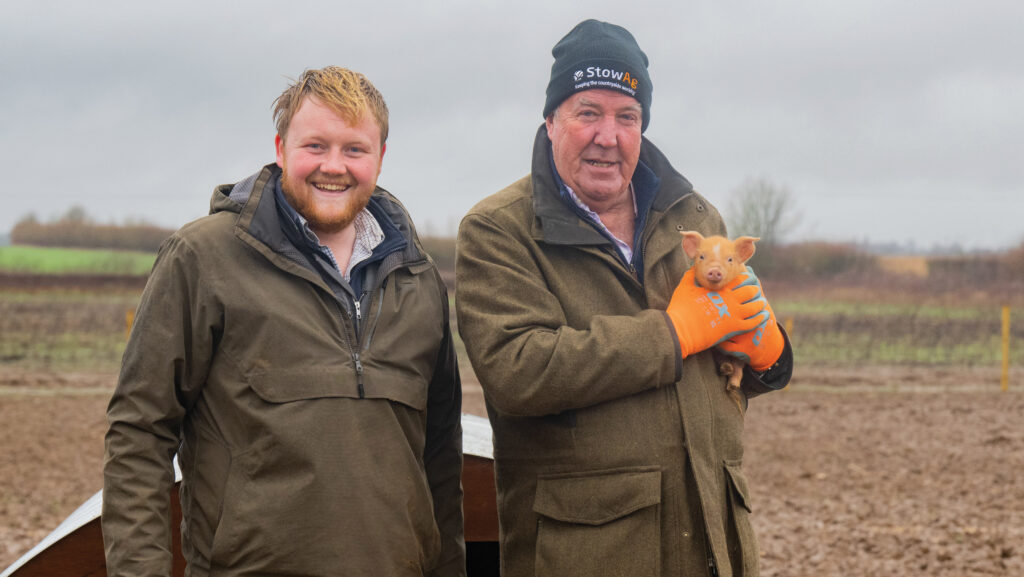This Week in Farming: Tariffs, taxes and Clarkson’s Farm
 Kaleb Cooper (left)
and Jeremy Clarkson © Freuds
Kaleb Cooper (left)
and Jeremy Clarkson © Freuds Welcome back to This Week in Farming, your one-stop shop for the best Farmers Weekly content from the past seven days.
First, here’s your markets (opens as PDF) with another slippage for old season lambs. Prices are well behind the extreme highs of last year when Easter and Ramadan overlapped.
Now, on with the show.
Trump’s tariffs
The wider news agenda and financial markets have been fixated on what US president Donald Trump’s tariffs – set to come into effect today (5 April) – will mean for the global economy.
Markets editor Charlie Reeve took a first look at what tariffs may mean for agriculture, although there is still a lot of uncertainty as we wait to see the impact of retaliatory tariffs from other nations and how trade flows will shift.
Prime minister Sir Keir Starmer wants to sign a trade deal with the US to reduce the 10% tariff imposed on the UK, and in my editorial this week I mull the positive and negatives of that – as well as this week’s attempted milling wheat strike.
Price rises
It’s not just Mr Trump who is adding to the cost of doing business this week, but also chancellor Rachel Reeves as several of the Budget measures come into effect.
That includes a reduction in the tax breaks available to those purchasing double-cab pickups for commercial purposes, which is why the machinery team have run through half a dozen potential pickup alternatives that may still be compliant, including the Foers Ibex.
And there’s another money-saving wheeze the machinery team have unearthed this week – heating the workshop using manure.
Foot-and-mouth disease in Europe
An additional case of foot-and-mouth disease (FMD) in Hungary, but close to the Austrian border, this prompted Defra to ban the import of Austrian livestock and related products, including dairy, this week.
So far this year, seven cases of FMD have been detected – in Germany, Slovakia, and Hungary – with movement restrictions and other control measures put in place.
The news came as farm leaders renewed their warning of the need for constant vigilance at the borders to prevent diseases spreading, with the last FMD outbreak in 2021 costing the UK economy £14.7bn at today’s prices.
Growing pains
Arable growers aren’t just thinking about the milling wheat in the shed this week, but the crop in the ground as well.
Struggles in previous seasons to hit spec are prompting some farmers to rethink their inputs to include more biological products.
Farmers are also being advised to inspect crops closely for disease, after AHDB boffins noted unusual early observations of yellow rust in trial plots.
But there will have been relief in some quarters this week at the news that the industry’s most relied-upon chemical, glyphosate, will now be on the market until the end of next year.
Who’s up and who’s down?
Feeling glum this week is Cranswick after Norfolk councillors rejected its “mega farm” planning application for large pork and poultry production units on adjacent sites.
And feeling cheerful is Cotswolds peasant farmer Jeremy Clarkson, who revealed that Clarkson’s Farm will return to Amazon Prime on 23 May for its fourth season.
Listen to the podcast
Don’t forget to tune in to the FW Podcast, with Johann Tasker, Louise Impey and Hugh Broom.
You’ll find it anywhere you listen to podcasts, or free to listen to on our website.

